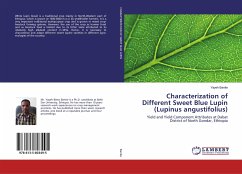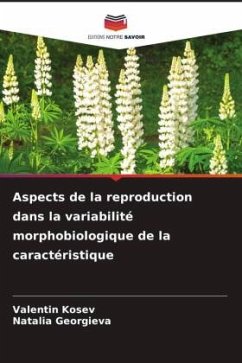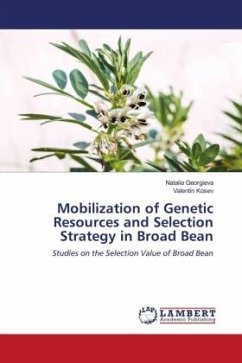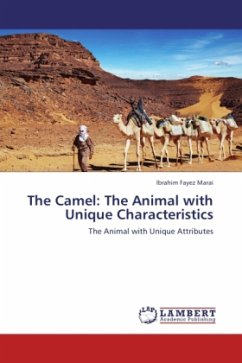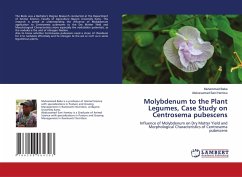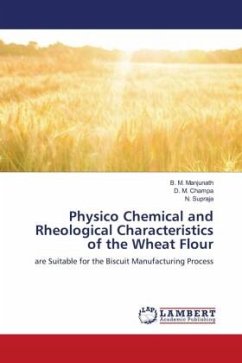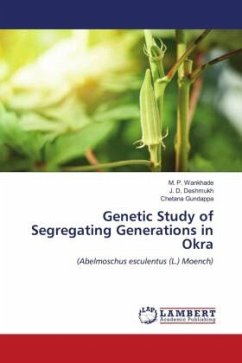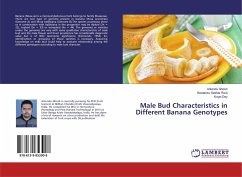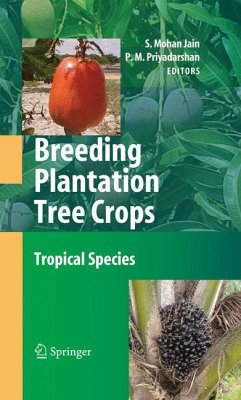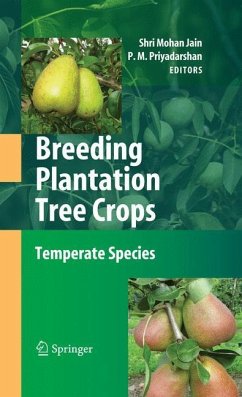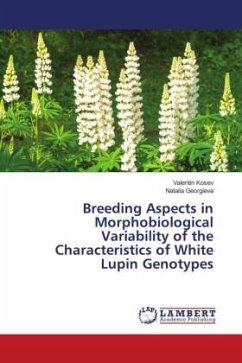
Breeding Aspects in Morphobiological Variability of the Characteristics of White Lupin Genotypes
Versandkostenfrei!
Versandfertig in 6-10 Tagen
56,99 €
inkl. MwSt.

PAYBACK Punkte
28 °P sammeln!
The biological characteristics and agronomic features of varieties and perspective forms of white lupine in the conditions of Central Northern Bulgaria have been studied. That allowed supplementing the information on the morphobiological variability of quantitative and qualitative traits in this crop. Optimal parameters of the selection model of white lupine are determined, and the possibilities for identification of the genotype by phenotype are considered. Genotypes, which differ in a complex of economic and biological traits and high seed productivity, are selected. Based on the conducted r...
The biological characteristics and agronomic features of varieties and perspective forms of white lupine in the conditions of Central Northern Bulgaria have been studied. That allowed supplementing the information on the morphobiological variability of quantitative and qualitative traits in this crop. Optimal parameters of the selection model of white lupine are determined, and the possibilities for identification of the genotype by phenotype are considered. Genotypes, which differ in a complex of economic and biological traits and high seed productivity, are selected. Based on the conducted researches, the breeding value of the accessions regarding studied features, their use in the breeding process are determined. A comparative assessment is performed in terms of phenotypic variability, adaptability, and ecological stability. Genotypes characterized by high seed productivity, tolerance to Fusarium oxysporum, favorable biochemical composition, and in vitro digestibility were selected using the method of multiple individual selection of the hybrid material. Also, accessions with a pronounced tolerance to one of the main weeds (Sorghum halepense) in the lupine areas were determined.



